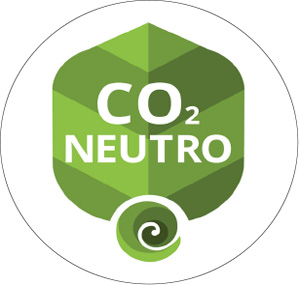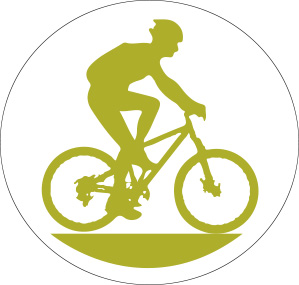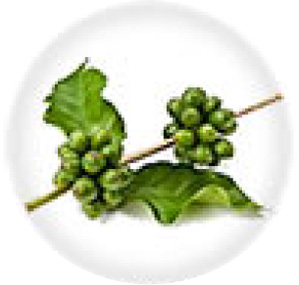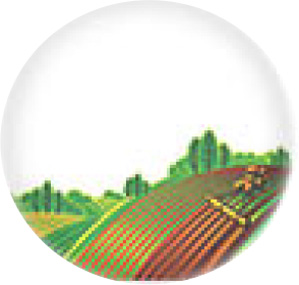Sustainable Foods that do WELL

Community actions
In the past, we had active participation in the Association of Rural Producers, in the Cooperative's fiscal council, and we helped found the Municipal Council for the Environment. We are currently on the board of the Santo Antônio do Jardi Foundation for Children's Support, Kaynã's t-shirts are printed at Educandário – Espírito Santo do Pinhal's Children's Shelter. We also receive children from public schools for free for environmental education and people served by social projects in our region.

Environmental education
We receive students from the public education system, free of charge, for a special tour of the Retiro Santo Antônio farm, where we present in practice various themes such as riparian forest, river siltation, rain cycle, etc... And at the end they receive their “Guardians of Nature” medals. As the poet Gonzaguinha would say, they are the SEEDS OF TOMORROW.

Inclusion of people with disability
In addition to Braille in our packages, we have a Sensorial Tourism itinerary for blind and low vision people. We are partners of the Dorina Nowill Foundation, to which we donate 1% of our sales. Toca do Kaynã also makes activities more accessible, favoring people's mobility and autonomy.

Comfortable housing for employees
We offer comfortable housing to the employees of the Farm and Kaynã products. Of the 10 employees, 9 live on the farm in houses with large backyards, and they are encouraged to have their own vegetable garden and raise chickens

Quality and safe food
Kaynã products are committed to quality, respect for nature and people, from the beginning of production until reaching the consumer. Some actions: removal of defective beans attacked by pests, for this in our cafe we make 4 selections; the corn we use for our cornmeal, in addition to not being transgenic, undergoes a manual selection before grinding; we have reduced use of chemicals; fenced coffee yards and lots of care with storage places.

Traceability inside and outside the gate
Traceability has been implemented since 2008, with the aim of monitoring the entire production process of our products, recording and monitoring actions before, during and after harvesting. This allows us to identify batches and track the reasons that resulted in qualities above or below expectations.

Sustainable Packaging
The packaging boxes for Kaynã products are made of certified paper (FSC) from non-native forests and with sustainable management, 100% recyclable kraft paper, the printing ink is non-toxic and solvent-free and also has information in Braille to facilitate access for people with visual impairments.

Neutralization of Co2 Emissions
Through the CO2 Neutral Program, we purchase carbon credits to neutralize the CO2 emissions generated by transporting our products to our small inventory in São Paulo and also by the emissions generated by postal vehicles for the delivery of our online sales -line. These credits we buy support the “Maisa REDD+ Project” in Belém / PA.

Sustainable deliveries
We are also concerned about the trajectory of our products to the consumer. To further reduce the carbon footprint, in Greater São Paulo retail, Kaynã products are delivered by bicycle or electric vehicles.

Shade-grown coffee
We started afforestation in the coffee plantations in 2008, with the objective of minimizing the effects of climate change, favoring several aspects such as attenuation of solar radiation, reduction of temperature extremes, in the quality of the fruits due to the lengthening of the ripening period and we also have indirect benefits such as shelter for fauna, landscape value and the possibility of crop diversification, such as avocado for example.

Reduced use of Chemical Products
We always try to reduce the use of chemicals in our production. For this, we adopted the Integrated Management of Pests and Diseases (MIPD) in order to combine different control practices, prioritizing mechanical, cultural and biological controls. When necessary, chemical products are used, however, market options with a lower toxicological degree are prioritized.

Waste appropriately disposed of
This is a very complex topic as we depend to a great extent on third parties, but we strive to minimize our impact by trying to provide an adequate destination for waste, by transporting "recyclable" waste to a point of receipt of autonomous scavengers 5 km from the farm; transportation of “non-recyclable” garbage to the city hall's collection point; return of pesticide packaging that is 28 km from here; installation of septic tanks and grease traps in all inhabited houses; capture of coffee washing water and stable that return for coffee fertigation.

Soil management and conservation
We adopt a management that prevents erosion and maintains fertility. The main practices are: Level planting; vegetal cover; clearing the bush, avoiding leaving the ground fully exposed; minimal cultivation; dense planting and reforestation.

Environmental preservation and recovery
We have already planted more than 9,000 seedlings of native trees, recovering and protecting almost entirely the 8 springs and the banks of the 1100 meters of the stream that runs through the property. These areas now form ecological corridors that are habitat for numerous wild animals, which are seen more and more frequently, including some threatened with extinction such as pampas deer, maned wolf and puma.

Contact
Rod. SP-346 · Km 209
Sto. Antônio do Jardim · SP · Brasil
Cx Postal 41 – CEP 13995·000